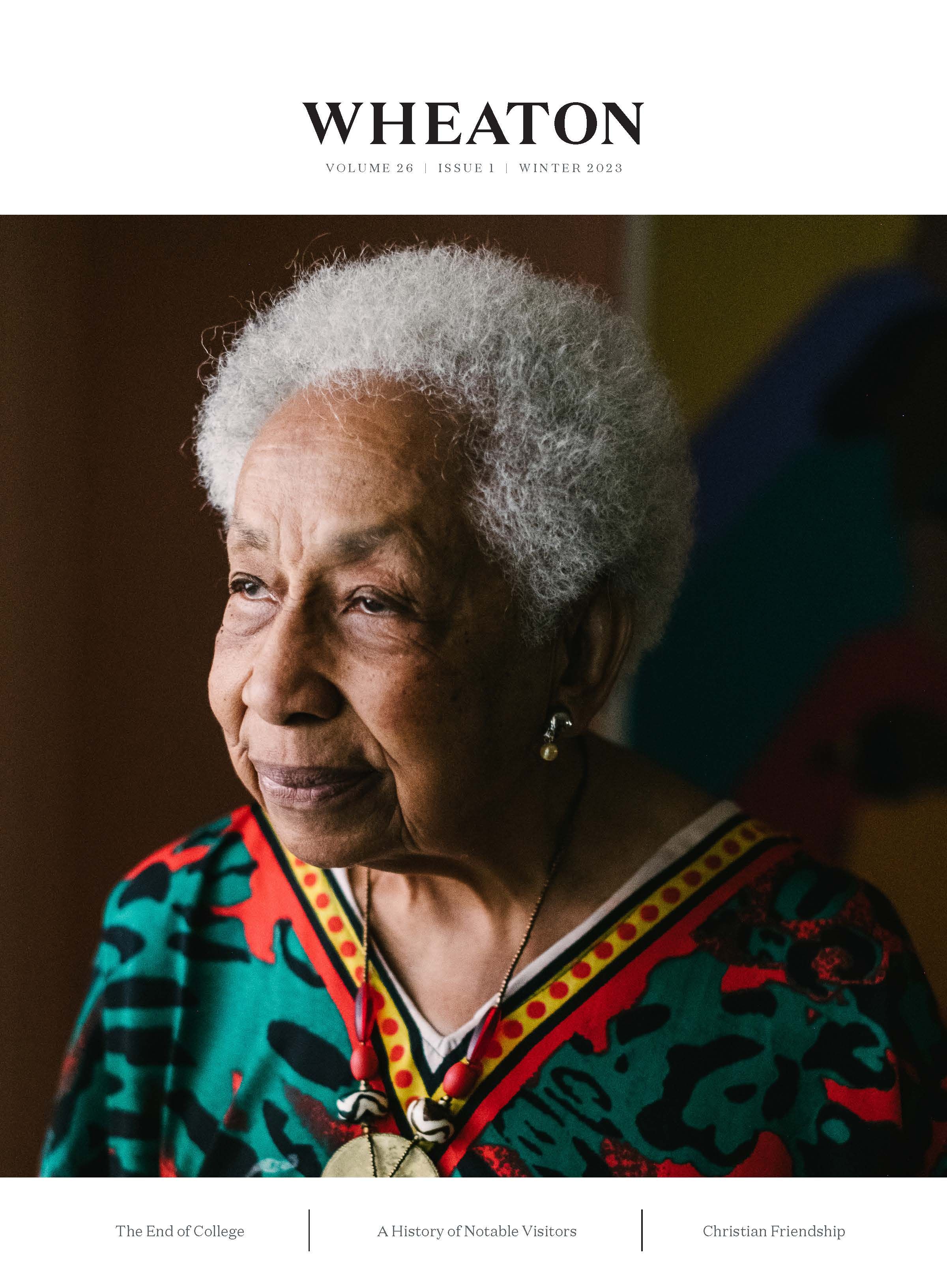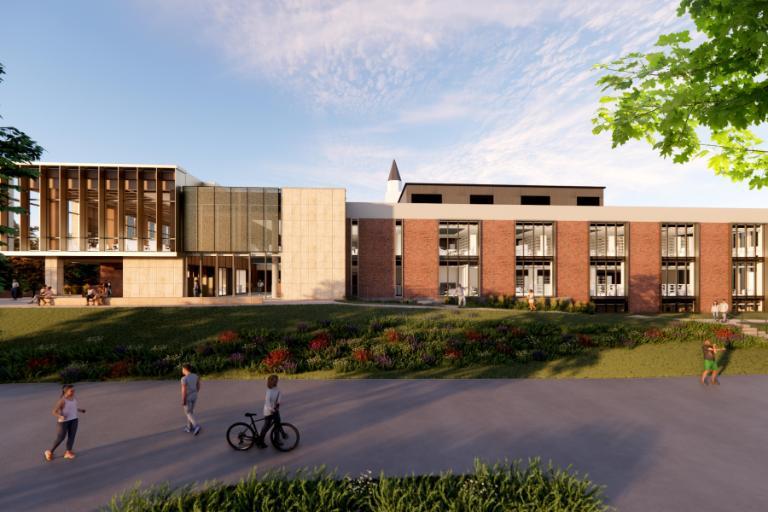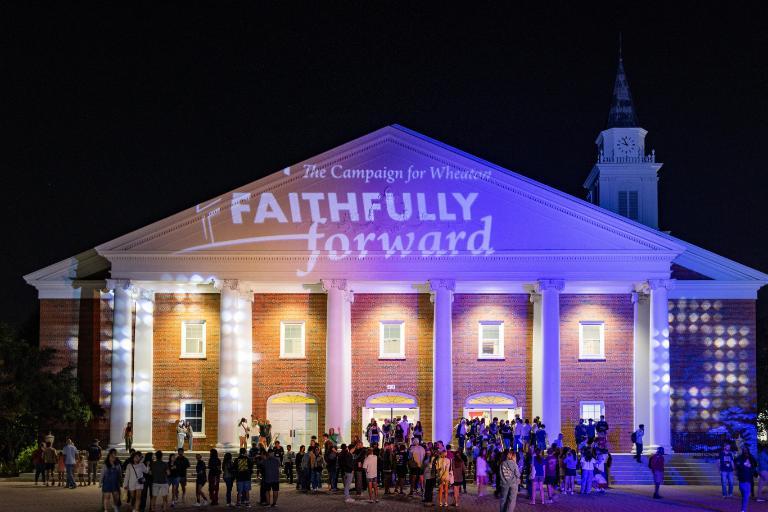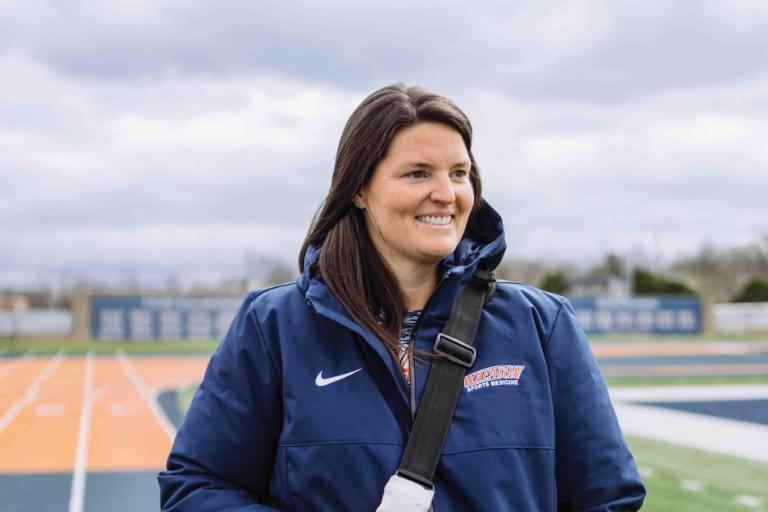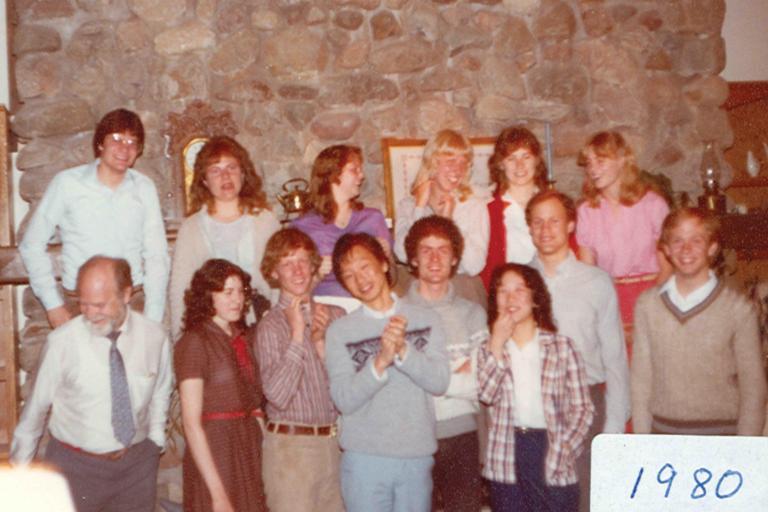Professors Beyond the Classroom: Dr. Bob O’Connor
Catch the inside scoop on this philosophy professor’s foray into professional off-road unicycling.
Words: Cassidy Keenan ’21
Photos: Josh and Alexa Adams
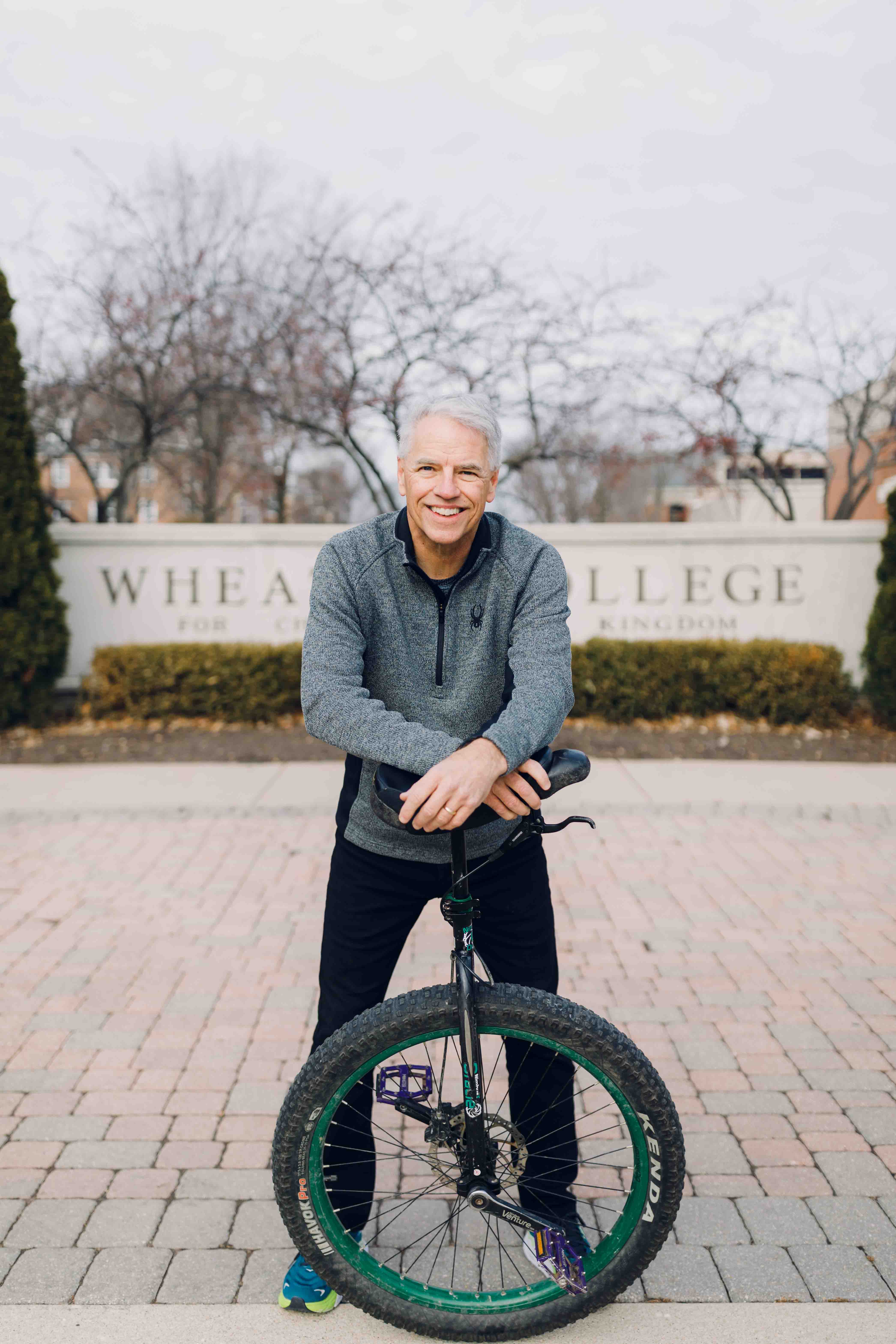
When I first heard that Dr. Bob O’Connor ’79, Associate Professor of Philosophy, enjoyed off-road unicycling, I wasn’t even sure how to picture the hobby in my head. However, after only 30 seconds of watching YouTube videos of athletes performing the sport, I wasn’t even sure how he was still alive.
Dr. O’Connor learned to ride the unicycle recreationally when he was young, after many exhausting rounds of falling and getting back up. This gave him the foundation he needed when, 15 years ago, he attended a Cirque du Soleil show and beheld the unicycle act with a growing sense of excitement—because of his background, he had the unique ability to look at unicyclists in a cirque show and be fairly confident that he could pull it off himself. A quick Google search was all he needed to discover that “off-road unicycling” had blossomed into a professional sport. The first known instance of off-road unicycling occurred in 1944, but it really took off around the world and in the United States in the 1980s and 1990s. The sport’s innate challenge lies in the fact that it requires an enormous amount of concentration to avoid obstacles on the ground and keep from falling. Even riding for a mere minute without falling is a considerable feat.
“It’s almost zen in the sense that you have to forget about everything else,” said Dr. O’Connor. During a particularly challenging time in his life, O’Connor enjoyed the respite the sport provided him. “That was the beauty of it. You have to be in that moment because if you aren’t, you’re going to fall. It requires you to set aside ordinary worries.”
Dr. O’Connor enjoys unicycling recreationally in the forest and on mountain bike trails, but he has also had more extreme experiences with the sport. One highlight for him occurred during a trip out to the rugged land of Moab, Utah with a group of professional, world-class athletes who rode unicycles on mountain trails. The balance, dexterity, and athleticism required for such a trip is extraordinary and garners a fair amount of awe from spectators, but Dr. O’Connor has never been in it for the attention; he remembers it fondly simply because it was so much fun. He specifically recalls the lack of pretense, the sheer enjoyment and showmanship, and the sense of ownership that he and the athletes experienced over sharing this niche sport.
“I love the camaraderie, and I love the challenge, and the accomplishment of being able to ride a line that I wasn’t able to beforehand,” said Dr. O’Connor. “But in terms of, ‘Why would he do this?’ The answer is, it turns out, because it’s just plain fun.”
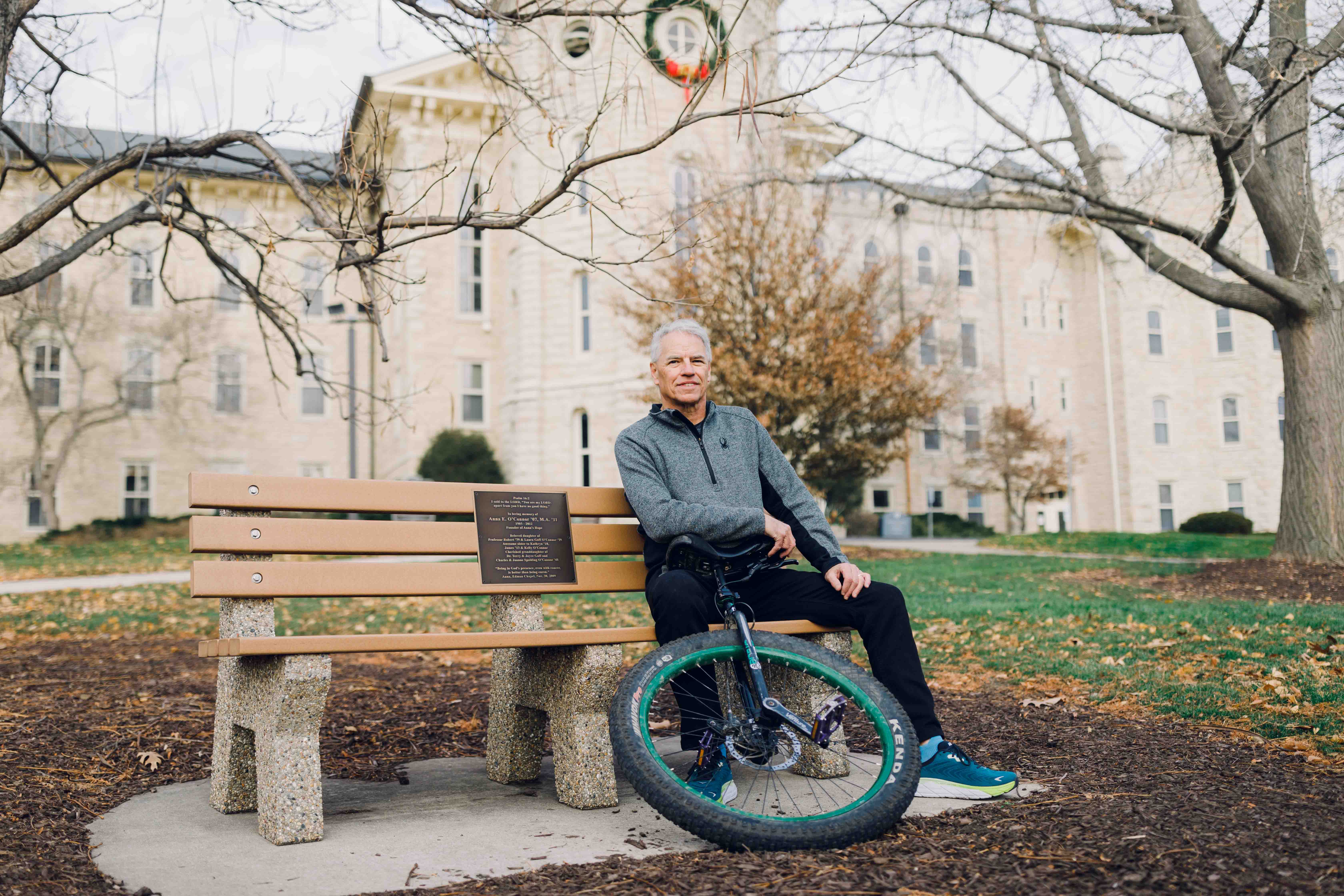
One of the benches outside Blanchard Hall is dedicated to Dr. O’Connor’s daughter, Anna E. O’Connor ’07, M.A. ’11, who passed away in 2012 after her battle with cancer.
